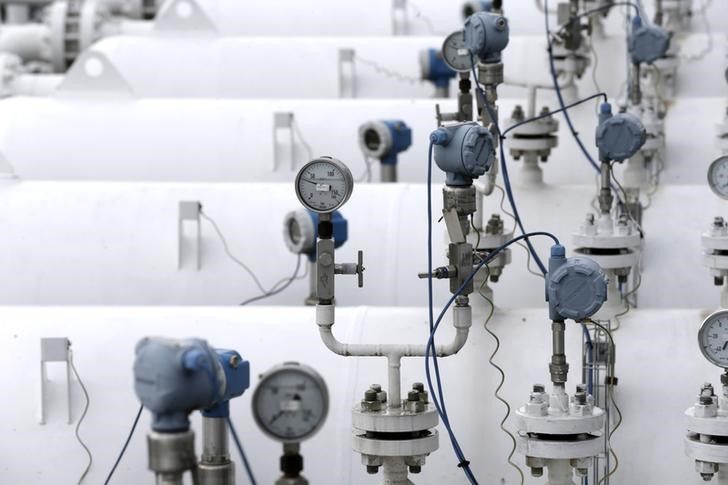Russia Tightens EU Gas Grip as It Rejects Extra Ukraine Transit
2022.06.20 14:05

Russia Tightens EU Gas Grip as It Rejects Extra Ukraine Transit
(Bloomberg) — Russia again tightened its grip on Europe’s natural gas supply, rejecting an offer from Ukraine to book more transit capacity to compensate for reduced flows through a key pipeline to Germany.
Russia’s Gazprom PJSC (OTC:OGZPY) opted not to reserve extra space to ship gas to Europe through Ukrainian pipelines for July at an auction on Monday, booking results show. It’s another sign that supplies from Moscow may remain curbed for weeks after the nation cut fuel shipments through the Nord Stream pipeline, its biggest gas route to the European Union, to just 40% of its capacity.
The squeeze caused gas prices to surge, adding pressure to EU member states already battling with surging inflation. Germany has called Russia’s supply cuts “politically motivated” and not due to technical issues, as Gazprom (MCX:GAZP) stated.
Read also: Gas Rationing Gets Closer for Europe as Putin Squeezes Supplies
Gas supply next month could be even tighter as the Nord Stream pipeline is scheduled for a complete shutdown for several days due to annual works. Ukraine has on numerous occasions called for Gazprom to increase flows via the Sudzha cross-border point to ramp up supply to Europe. The Russian company can still book additional space via Sudzha through daily capacity auctions, an option it hasn’t used so far this month.
Another point between the countries, Sokhranivka, was put out of service by the Ukrainian grid last month amid fighting in the eastern part of the country.
Gazprom can supply 77.2 million cubic meters of gas per day via Sudzha under its transit contract with Ukraine but it’s keeping flows at at about 42 million cubic meters. At the auction on Monday, Ukraine’s first monthly one since the invasion in February, Kyiv offered an extra 15 million cubic meters a day of capacity on that route for July.
Extra volumes sent via Sudzha, including the offered pipeline space, could have replaced half of the lost Nord Stream capacity, which is about 100 million cubic meters per day.
©2022 Bloomberg L.P.








